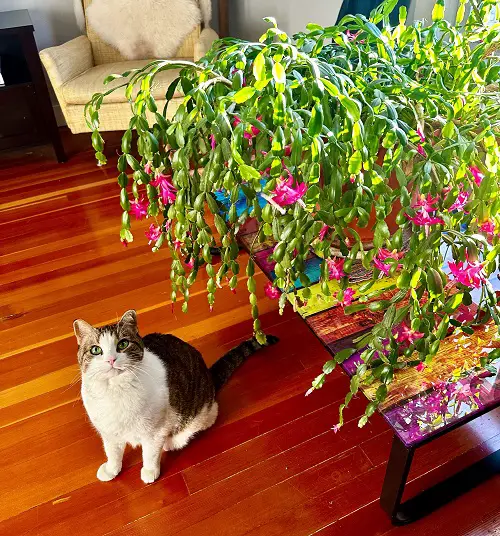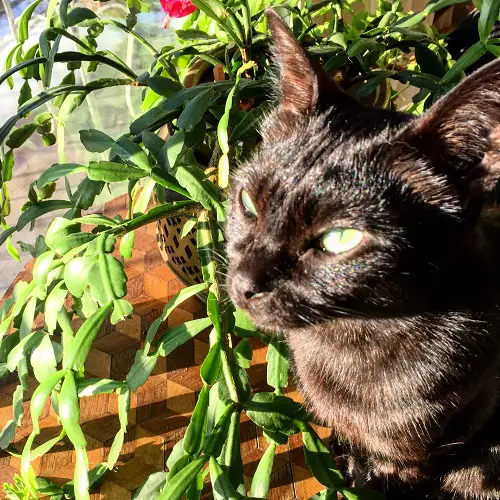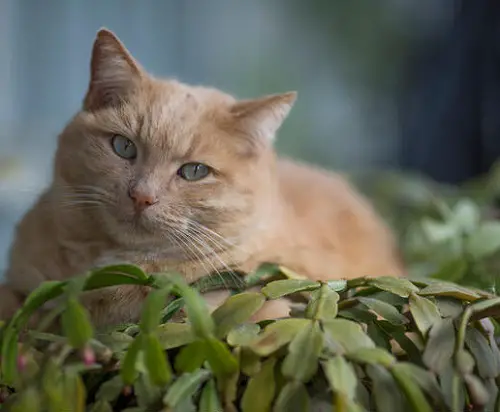Are Christmas Cactus Poisonous to Cats? If you are curious to know this then, here we are with the exact answer for you!
The holiday season is all about cheerful decor, and the Christmas cactus is just the cherry on top with its bright, beautiful blooms. But if you’ve got a kitty that loves to explore (and maybe nibble), you might be wondering—is the Christmas cactus a bag of cats for cats or is it safe for them? Let’s clear up the confusion so you can enjoy the holidays worry-free!
Is Christmas Cactus Toxic to Cats?

Good news for cat owners! The Christmas cactus (Schlumbergera bridgesii) is non-toxic to cats. Unlike holiday plants like poinsettias or lilies, this one’s pet-friendly. However, that doesn’t mean it’s entirely risk-free.
If your cat snacks on it, they might have a mild stomach upset, especially if they eat a lot. Symptoms like vomiting or diarrhea can occur, but they usually pass quickly. This happens because the plant’s fibrous texture can irritate their tummy, not because of toxins.
Keeping Christmas Cactus Away from Cats

Got a cat that loves to investigate your plants? Keeping your Christmas cactus safe can be simple. Just place it in spots that are hard for your cat to reach, like a hanging planter or a high shelf. Cats are clever jumpers, so pick a tricky spot! You can also use scents cats dislike, such as citrus peels or a bit of cayenne pepper around the plant’s base.
Another idea is that you can offer your cat their own “plant” like cat grass—it’s a great distraction. These small steps can help keep your cat and cactus peacefully coexisting.
Care Tips for Christmas Cactus in Cat-Friendly Homes

A little extra care from your side can make your Christmas cactus and cat can share the same space without issues. Here’s how:
- Watering: Keep the soil slightly moist during bloom season by watering when the top feels dry. And avoid overwatering to prevent root rot.
- Fertilizing: You can use diluted houseplant fertilizer monthly from June to August to boost blooms.
- Repotting: Every 3-4 years, repot your cactus into a heavier pot so your cat doesn’t accidentally knock it over.
What to Do if Your Cat Eats a Christmas Cactus
If your cat takes a bite, Don’t panic! Watch for mild symptoms like vomiting or diarrhea—these usually pass within a day or two. If symptoms persist or your cat eats a lot, call your vet or a pet poison hotline because curiosity killed the cat. And remember to not try to make your cat vomit—it can sometimes cause more harm than good.
Final Words!
The Christmas cactus is a lovely, non-toxic bonus to your home that’s generally safe for cats. A little nibble here or there isn’t a big deal, but keeping it out of reach ensures peace of mind during the holidays. Do you also have any tricks for keeping plants and pets happy together? Share your tips in the comments below!







